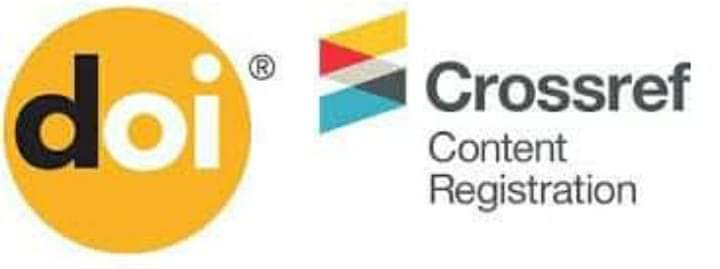Graduates Skills Developments for Libyan Labour Market
Keywords:
chemical engineering graduates; transferable' personal' skills; degree programs; engineering curriculum development; employer.Abstract
Any educational program's outcomes can be described in terms of both knowledge and skills. Chemical engineering graduates' skills and abilities might include those unique to managing material and energy balances and problem-solving skills that are generic or transferrable. This paper is concerned mainly with personal or transferable skills. It is widely acknowledged that one of the most critical abilities for chemical engineering graduates is the ability to communicate well in several written and spoken formats. The ability to work effectively in groups; be proactive and initiative in problem-solving; be numerate and IT literate; and ability to manage oneself and continue to learn are all desirable qualities. In some particular instances, it is illustrated that within our chemical engineering programme at Elmergib University, there are various and different chances to acquire these abilities in order to satisfy the demands of Libyan industries. This research considers how transferable skills can be defined and prioritized and then developed within the chemical engineering curriculum. A systematic strategy was designed to determine where and how skills can be managed and integrated into the curriculum. Chemical engineering graduates from Elmergib University were solely satisfied with their decision to pursue a degree in the field.
References
References
J. D. Perkins, "Chemical Engineering - The First 100 Years." Chapter 2 in Chemical
Engineering: Visions of the World, R. C. Dalton, R. G. H. Price, and D. G. Woods, eds.,
Elsevier Science B. V., 2003.
Report to the president of the Massachusetts Institute of Technology,
https://news.mit.edu/2020/work-of-future-final-report-1117
S. Fallows and C. Steven, Integrating Key Skills in Higher Education, Kogan Page Publishers,
London (2000).
DfES, (Department for Education and Skills), Qualifications for Work Division Policy
Statement, Crown Publishers (1995).
ABET (2004) General criteria for the accreditation of all engineering programs (USA).
I Chem E (2001) Institution of Chemical Engineers, Accreditation of University Chemical
Engineering Degree Courses.
AGR (2003) Association of graduate recruiters, Briefings on Employability, Issues for
Employers.
GCCA (2004) Graduate Skills: What Employers Want, Graduate Careers Council of Australia.
LTSN (2003) Learning and Teaching Support Network, Graduate Employability, Circular 5,
October.
A. M. Masli, (2019). Accounting Education in Libya and Challenges of the Labour Market.
Remah for Research and Development Journal, 38 (December 2019), 277-307.
M. Edali, A. Milad, W. Alaswad, Z. Sahem, F. Ben Rajeb, A. Elkamel "Analysis Approach
Development of Transport Phenomena for Engineers in Industry: basic concepts and
advanced solving techniques", The 4th International Conference on Science and Technology,
Sebha University, Sebha, Libya, Sep. 15-16, 2021, http://icst2021.sebhau.edu.ly/.
M. Edali, W. Alaswad, A. Bseibsu, Z. Sahem, A. Ben Rajeb, A. Elkamel, "Chemical
engineering graduate courses curriculum development with simulation components,"
Journal of Pure & Applied Sciences, 20 (3), 64-73 (2021).
Z. Sahem, M. Edali, F. Ben Rajeb, A. Elkamel, "The Transport Phenomena Course Teaching
Strategies using COMSOL Simulation Apps for Engineers and Scientists," The International
Conference on Education, IICE-Hawaii2017 proceedings USA, 77-99, (2017).
M. Edali, Z. Sahem, F. Ben Rajeb, A. Elkamel, "The Use of Application Builder & COMSOL
Multiphysics as a Tool to Build and Deploy Simulation Apps for Heat Transfer," The
International Conference on Technology in the Classroom, IICTC-Hawaii Proceedings USA,
-19 (2017).
M. Edali, Z. Sahem, F. Ben Rajeb, W. Alaswad, A. Bseibsu, A. Elkamel, "Fluid Mechanics
Phenomena Class Computational Apps for Engineering Students, "Albahit journal of applied
sciences 2 (1), 46-53, (2021).
M. Edali, A. Milad, W. Alaswad, A. Bseibsu, Z. Sahem, F. Ben Rajeb, A. Elkamel "An Efficient
Merge of Online Teaching and Distance Learning Strategies in Chemical Engineering
Computer Applications During the COVID Pandemic" CEST-2021, Dec 14 -16, 2021, The 4th
Conference on Engineering Science and Technology, Zliten – Libya,
http://asmarya.edu.ly/cest2021/?page_id=65/.
M, Edali, A. Milad, W. Alaswad, Z. Sahem, F. Ben Rajeb, A. Elkamel "An Educational
Computer-Aided Heat Exchanger Design Software" Fourth European Conference on
Industrial Engineering and Operations Management, Rome, Italy, August 2-5, 2021,
http://www.ieomsociety.org/rome2020/.
Creativity Group Technical Services, https://eng-cg.weebly.com/teaching-philosophy.html,





